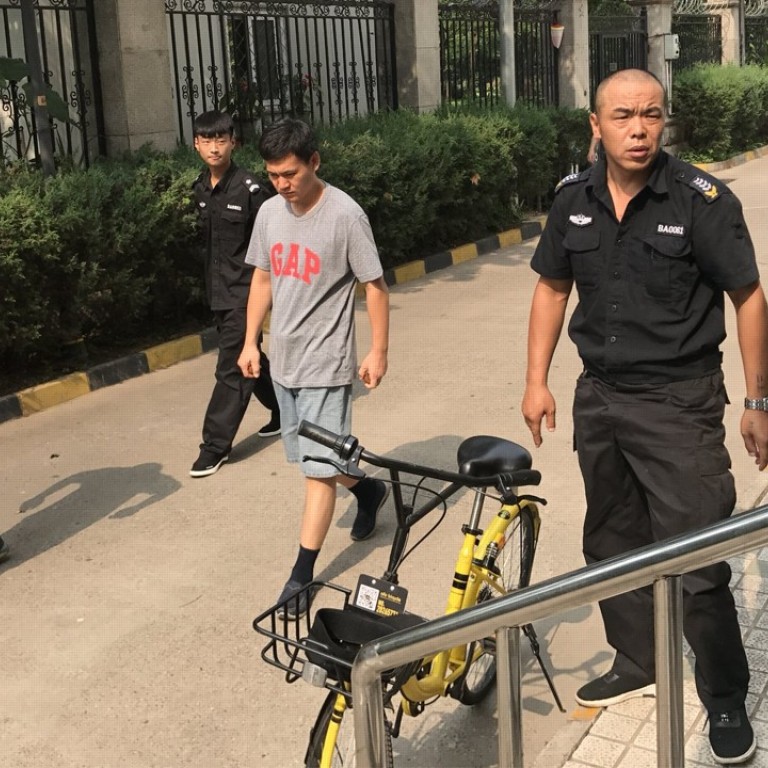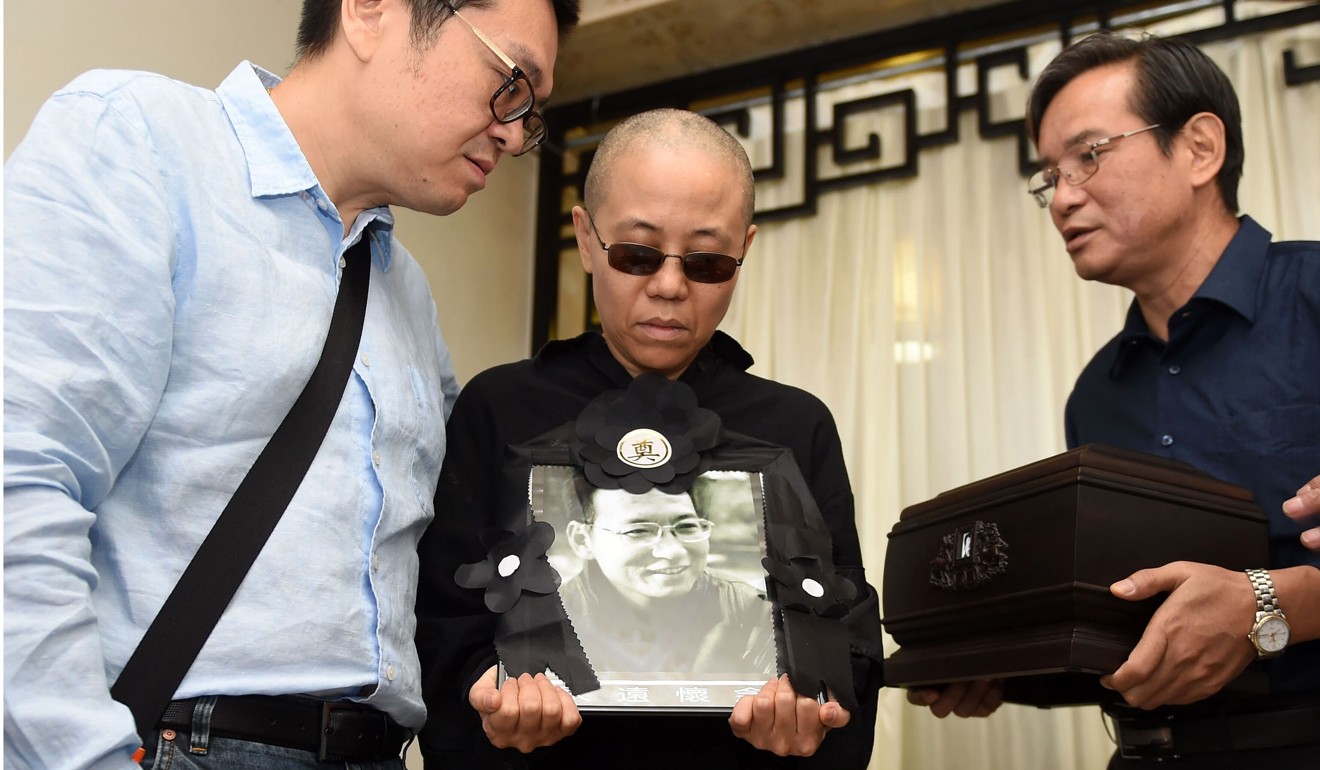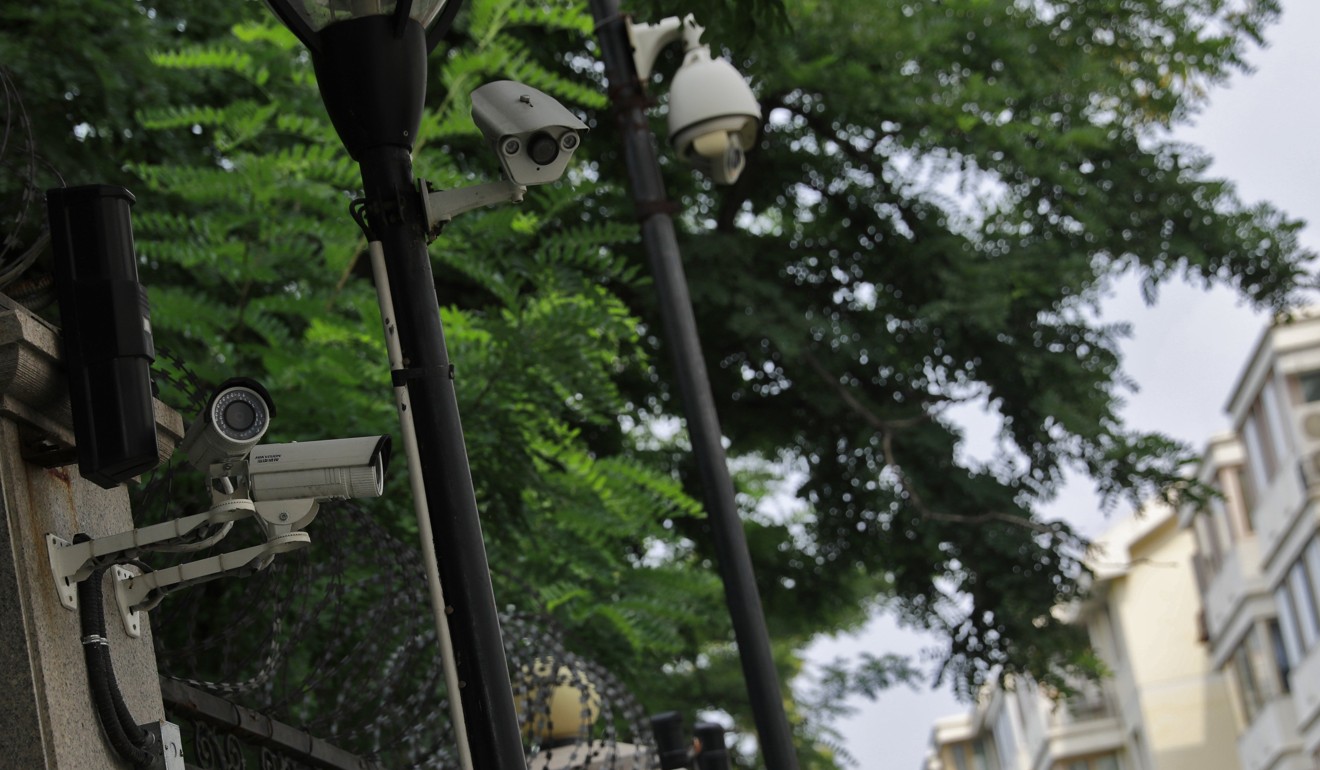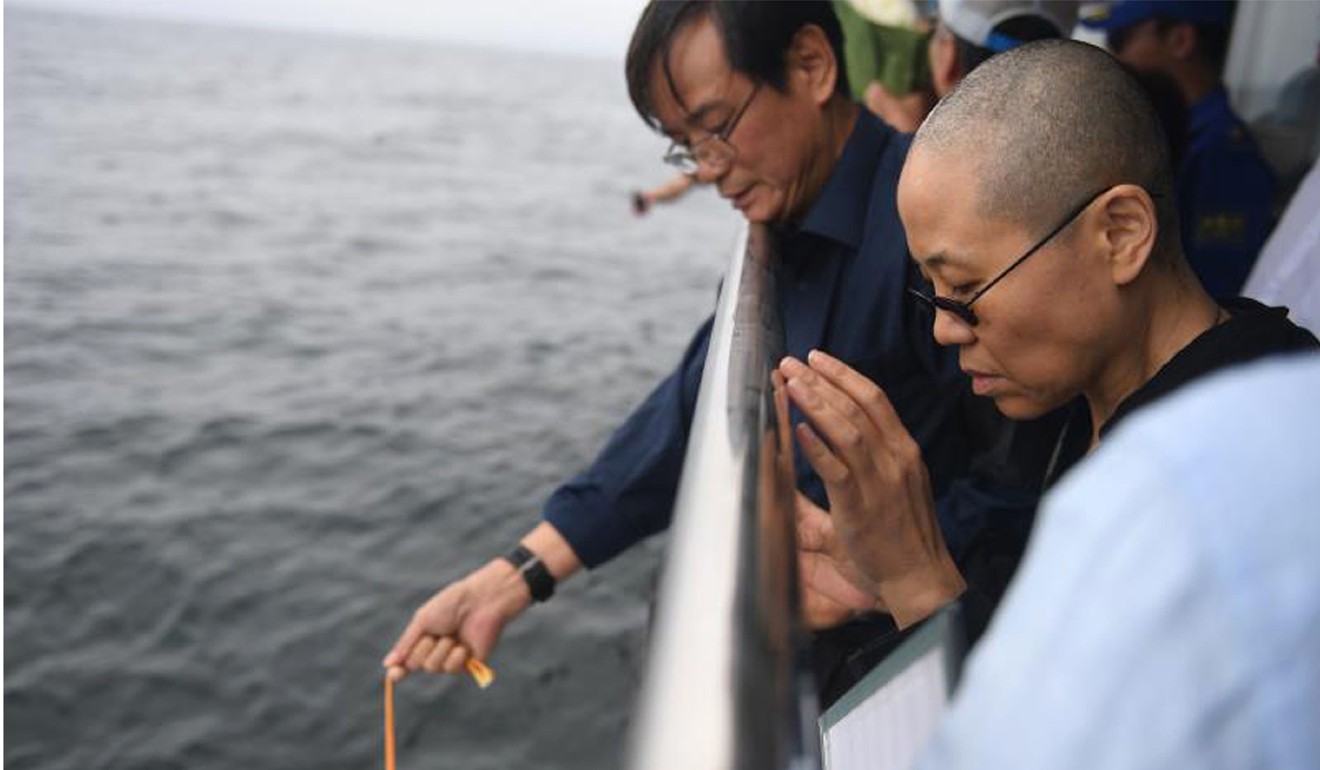
Foreign diplomats blocked by security guards at home of Liu Xiaobo’s widow
German and other embassy staff trying to find Liu Xia were stopped when they went to her Beijing flat, source says
Foreign diplomats trying to locate the widow of late Nobel laureate Liu Xiaobo were blocked by security guards when they went to her Beijing flat on Thursday, a German embassy source said.

A source with the German embassy told the South China Morning Post on Friday that German and other foreign diplomats tried to visit Liu’s Beijing apartment on Thursday but were stopped by security staff. “The uncertainty over Liu Xia’s whereabouts persists,” the source said.
Concerns have been mounting over the well-being of the 56-year-old poet and artist – who has been under house arrest for seven years – since her husband’s death.
Sources earlier told the Post that diplomats from Germany and the United States had asked to meet officials from the Ministry of Public Security to discuss Liu’s situation, but their request was refused.
“Right now the most important thing is to get in touch with Liu Xia, which is very difficult,” the German embassy source said, adding that they would continue efforts with other foreign diplomats to push for Beijing to grant her freedom of movement.
Separately, a German foreign ministry source said on Wednesday that it would continue to urge the Chinese government to allow Liu to leave the country. “We are trying to get in contact with her to investigate her wish to exit China. The federal government will continue to follow the case closely and to discuss it on all levels,” the foreign ministry source said.
Security is always tight around Liu, and diplomats, journalists and friends have been stopped from visiting her in the past.

After Liu Xiaobo’s death, China News Service quoted a government official as saying that Liu was a free person but she did not want to be disturbed.
Foreign ministry spokesman Geng Shuang also told media earlier that “the entry and exit of Chinese citizens will be handled in accordance with the law” when pressed by reporters about Liu’s situation and whether she would be allowed to leave China.
As well as her husband’s death, Liu has had to cope with the loss of her father last year and her mother in February, while enduring house arrest after Liu Xiaobo was sentenced to 11 years’ jail for “inciting subversion of state power” in 2009.
She was diagnosed with depression in 2014 and friends have said she reached breaking point before Liu Xiaobo was granted medical parole in June after being diagnosed with late-stage liver cancer.
Since his death there have been mounting international calls for the authorities to loosen their grip on Liu Xia, but Beijing has not responded.
Activists on the mainland, meanwhile, were arrested for mourning Liu Xiaobo after his death. The authorities hastily arranged a cremation and sea burial for the late dissident.
After the funeral, Liu and her brother Liu Hui are believed to have been escorted to Dali in Yunnan province, her friends said last month, citing family members.

Liu Xiaobo, China’s most famous political prisoner, was jailed for his part in writing a pro-democracy manifesto known as “Charter 08”. He was awarded the 2010 Nobel Peace Prize while in jail and was represented by an empty chair at the ceremony in Oslo.

